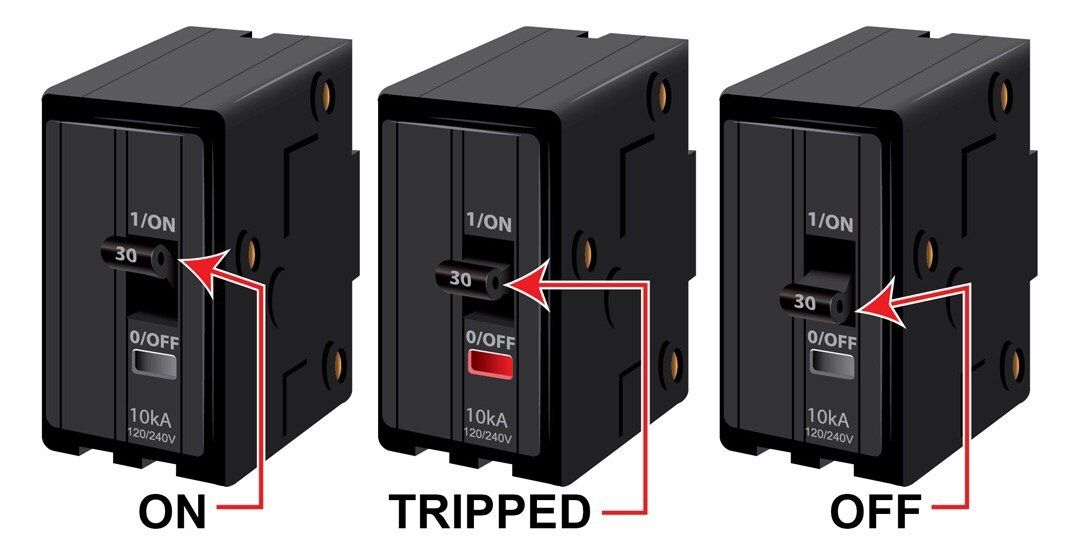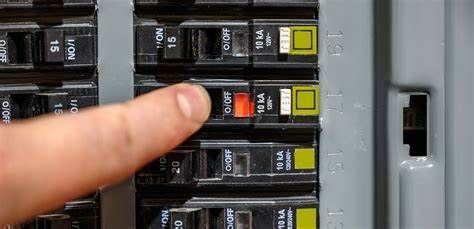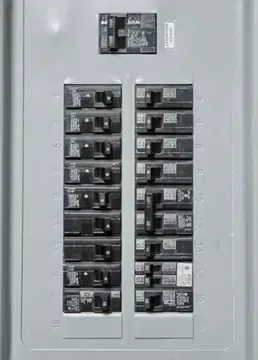Troubleshooting Electrical Circuit Tripping
Understanding the Causes and Solutions

Few things are more frustrating than having your electrical circuit repeatedly trip, disrupting your daily activities and raising concerns about safety. While occasional tripping is normal and serves as a protective mechanism, frequent or persistent tripping signals underlying issues that need attention. In this blog post, we'll explore the common causes of electrical circuit tripping and provide solutions to help you resolve the problem.
Understanding Circuit Breakers:
Before delving into the reasons behind circuit tripping, let's understand the role of circuit breakers. Circuit breakers are safety devices designed to protect electrical circuits from overload, short circuits, and faults by interrupting the flow of electricity when necessary. When a circuit experiences an abnormal surge in current, the breaker trips, cutting off power to prevent damage to wiring, appliances, and the risk of fire.
Common Causes of Circuit Tripping:
Overloaded Circuit: One of the most common reasons for circuit tripping is overloading. This occurs when the total electrical load on a circuit exceeds its capacity. Overloading can result from connecting too many appliances or devices to a single circuit or using high-wattage appliances that draw more current than the circuit can handle.
Short Circuits: A short circuit occurs when hot (live) and neutral wires come into direct contact, bypassing the intended electrical load. This can happen due to damaged wiring, faulty connections, or defective appliances. Short circuits create a sudden surge in current, causing the circuit breaker to trip to prevent overheating and fire.
Ground Faults: Similar to short circuits, ground faults occur when hot wires come into contact with ground (earth) wires or conductive materials. This can happen due to damaged insulation, exposed wires, or faulty appliances. Ground faults can trip circuit breakers, as they pose a risk of electric shock and fire.
Aging Wiring or Faulty Equipment: Over time, electrical wiring can deteriorate due to wear and tear, corrosion, or rodent damage. Faulty equipment, such as appliances with damaged cords or internal components, can also cause circuit tripping. In such cases, the defective wiring or equipment needs to be repaired or replaced to prevent further issues.
Solutions to Prevent Circuit Tripping:
Reduce Electrical Load: Distribute electrical appliances and devices across multiple circuits to avoid overloading. Consider upgrading to higher-capacity circuits or redistributing loads to balance electrical usage.
Inspect and Repair Wiring: Regularly inspect electrical wiring for signs of damage, such as frayed insulation, exposed wires, or burning smells. Hire a qualified electrician to repair or replace faulty wiring to ensure safety and prevent circuit tripping.
Address Ground Faults: Install ground fault circuit interrupters (GFCIs) in areas prone to moisture, such as kitchens, bathrooms, and outdoor outlets, to detect and prevent ground faults. Test GFCIs regularly to ensure they are functioning correctly.
Upgrade Circuit Breakers: Consider upgrading to arc fault circuit interrupters (AFCIs) or combination AFCI/GFCI circuit breakers, which provide enhanced protection against both arcing faults and ground faults.
Service Faulty Equipment: If appliances or devices are causing circuit tripping, have them inspected and serviced by a qualified technician. Repair or replace damaged cords, plugs, or internal components to prevent further issues.
Electrical circuit tripping is a safety feature designed to protect against electrical hazards, but frequent or persistent tripping signals underlying problems that require attention. By understanding the common causes of circuit tripping and implementing appropriate solutions, you can ensure a safe and reliable electrical system in your home or workplace. If you're unsure about diagnosing or addressing electrical issues, always consult a qualified electrician to ensure proper safety and compliance with electrical codes. Call us to address your electrical issues!
How to fix a tripped breaker:
Resetting a tripped breaker is a simple task that can restore power to your electrical circuit. Here's a step-by-step guide on how to reset a tripped breaker safely:
Identify the Tripped Breaker
- Start by locating the electrical panel or breaker box in your home or building. This panel is usually found in a utility room, garage, basement, or exterior wall.
- Open the panel door to access the circuit breakers. Each breaker is typically labeled to indicate which area or appliance it controls.
Determine the Cause of the Trip:
- Before resetting the breaker, it's important to identify the cause of the trip. Common reasons for a tripped breaker include overloading, short circuits, or ground faults.
- Consider what appliances or devices were in use when the breaker tripped. If you suspect an overload, unplug or turn off some devices before resetting the breaker.
Locate the Tripped Breaker:
- Look for the breaker switch that is in the "off" or middle position. A tripped breaker is typically positioned between the "on" and "off" positions, indicating that it has been tripped.
Reset the Breaker:
- To reset the tripped breaker, firmly push the breaker switch to the "off" position, and then switch it back to the "on" position. You should feel or hear a click as the breaker resets.
- If the breaker immediately trips again or if you hear crackling or popping sounds, do not attempt to reset it. This could indicate a serious electrical issue that requires professional attention.
Test the Circuit:
- After resetting the breaker, test the circuit to ensure that power has been restored. You can do this by turning on a light switch or plugging in a small appliance to the affected outlet.
- If the breaker trips again immediately, there may be a persistent issue with the circuit that needs to be addressed by an electrician.
By following these steps, you can safely reset a tripped breaker and restore power to your electrical circuit. However, if you encounter any difficulties or if the breaker continues to trip frequently, it's important to seek professional assistance to diagnose and address the underlying electrical issues. Safety should always be the top priority when dealing with electrical systems.
Contact us and we can come ensure everything is safe and working correctly.






Share On: